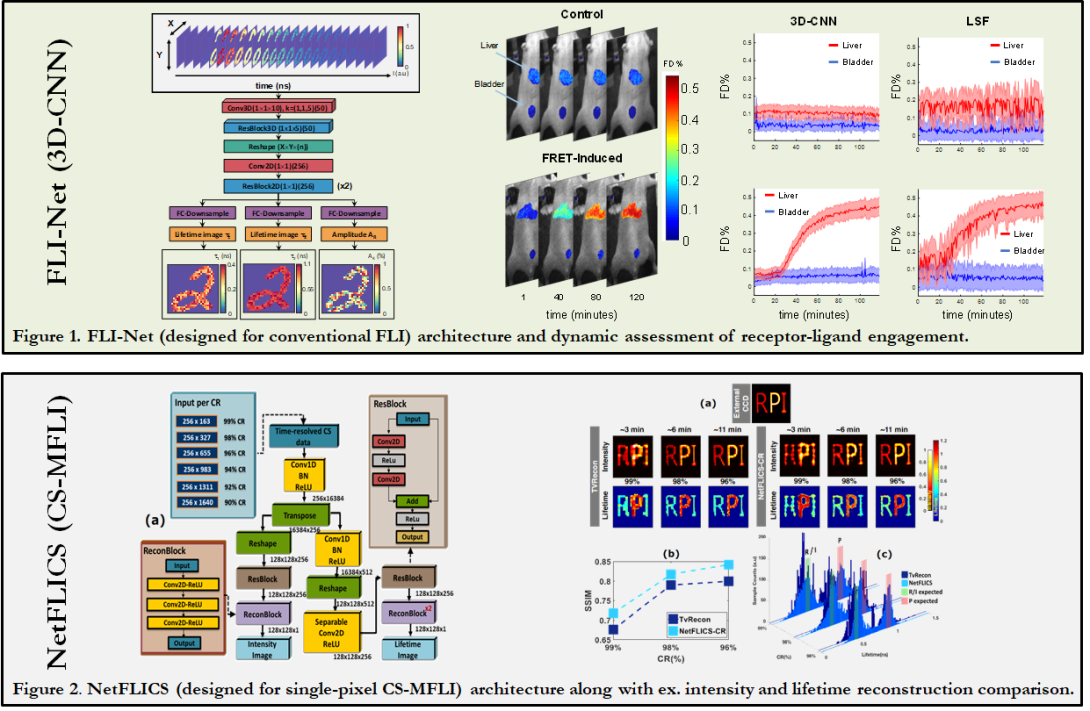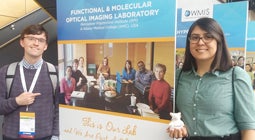Deep learning continuously offers improvements over conventional techniques in biosignal processing and computer vision – such as enhanced analytic speed, lower user-dependent bias and robustness to noise. Our lab has recently developed and heavily validated unique analytic workflows based on deep learning to tackle the inverse solving process inherent to our bioimaging technologies - such as complex FLI (microscopically and macroscopically), diffuse optical tomography, and fNIRS - across multiple challenging applications and technologies. By using state-of-the-art Monte Carlo modeling of light propagation, experimentally representative data is simulated over the ranges & conditions expected in biological application and used for training deep neural networks (DNNs). The improved reconstruction qualities observed, as well as the real-time employability achieved, is a huge step towards high-throughput pre-clinical & clinical application.

